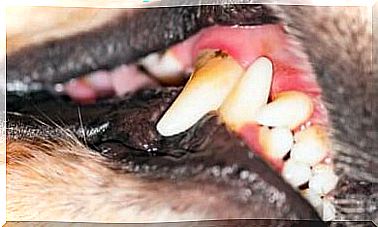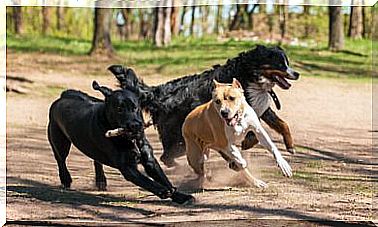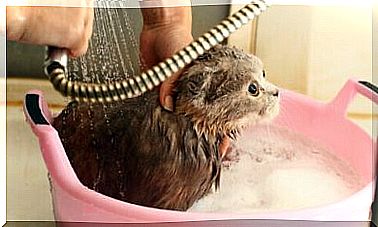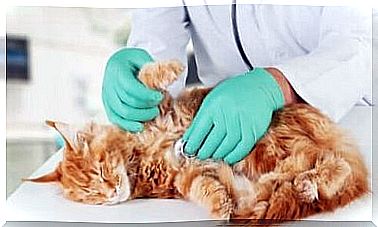Gastric Ulcer In Dogs: What To Do?
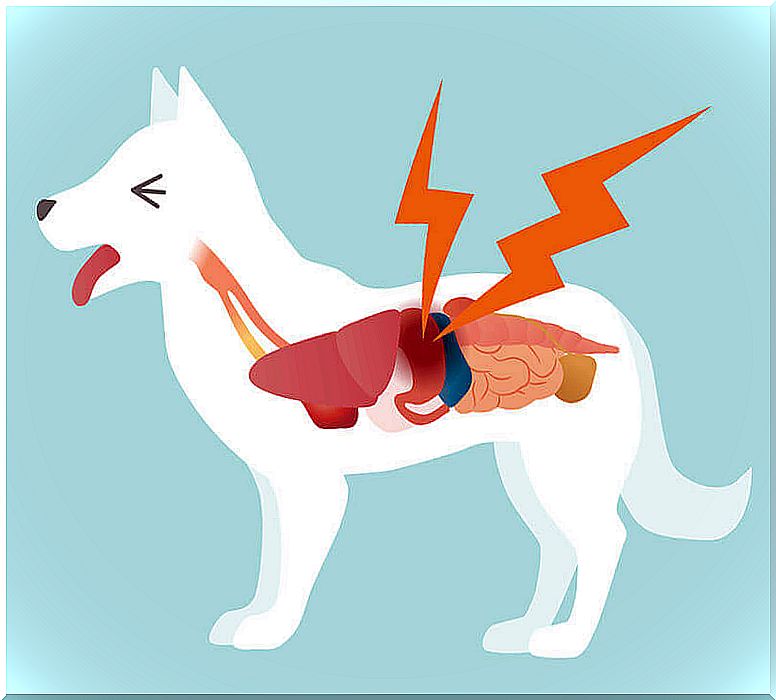
Ulcers in dogs are sores that develop in the lining or wall of the esophagus, intestine, or stomach. When the lesion is located in the last mentioned region, it is called a gastric ulcer.
In dogs, this type of medical condition seems to be related to several factors, such as age (being more common in young dogs or puppies), type of diet or as a consequence of other diseases.
The outermost layer of the stomach, called the gastric mucosa, acts as a protective wall against acidity, bacteria, temperature changes, etc. The first line of defense on this wall is a mucous secretion that contains acids, bicarbonate, and other antibacterial substances.
On the other hand, it has the ability to regenerate quickly when injuries arise or to remove harmful substances. Despite this, sometimes the causative agent remains over time, causing longer lasting damage.
Causes of gastric ulcer in dogs
One of the most common causes of gastric ulcers in dogs is the ingestion of foreign and toxic bodies , especially when they are puppies and tend to bite or swallow everything they find. At home, cleaning chemicals, leaded substances, and some plant species can directly damage the gastric mucosa, leaving the stomach lining unprotected.
Another group of dogs at high risk for gastric ulcers are those who follow a high-fat diet. Probably, the feed they receive already contains the correct dose of lipids.
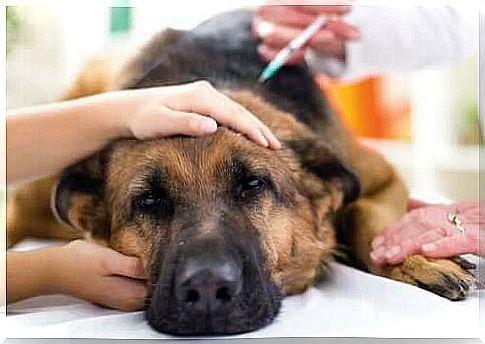
However, if they continually receive “human food”, cooked and high in fat, their diet will be unbalanced. This type of diet causes delayed gastric emptying and hyperacidity that, together with a physiological stress reaction, an increase in the hormone called cortisol, can influence the appearance of gastric ulcers in dogs.
On the other hand, stress ulcers are not common in dogs. However, animals that regularly perform intense exercise have a higher risk of suffering from gastric ulcer or even necrosis. In fact, the most common cause of sudden death in dogs during sled racing is gastric disease.
In addition, certain medications, such as non-steroidal anti-inflammatory drugs (ibuprofen, naproxen, aspirin or paracetamol) can damage the gastric mucosa, especially in animals that must take this type of medication for long periods, such as those with vertebral problems.
Finally, certain diseases can cause gastric ulcers in dogs. For example, bacterial infections caused by Helicobacter pylori or liver failure.
Treatment of gastric ulcer in dogs
Generally, when diagnosing a gastric ulcer in dogs, this procedure is followed:
- Foods that can stimulate the gastric glands should be removed from the diet.
- Prevent the animal from exercising or performing actions that increase its heart rate.
- If there is liver failure or bacterial infections, or anti-inflammatory therapies or corticosteroids are being applied, they should be eliminated first.
- Heal ulcers with fluid therapy to stabilize the cardiovascular system, reduce gastric acidity and correct, if present, states of dehydration, weight loss or anemia.
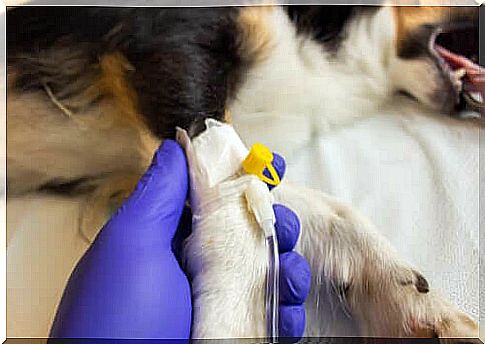
Once the ulcer has stabilized, treatment with a broad-spectrum antibiotic should be applied or combined if antibiotic therapy has already been started if bacteria are causing the ulcer.
How do you know if your dog has an ulcer?
First, if you think your dog may be suffering from stomach upset, take him to the vet. Early detection of ulcers increases the chance of complete healing.
The symptoms that dogs have when they have stomach problems can be confused with other types of digestive pathologies. The most common are:
- Vomiting, even with blood.
- Weight loss.
- Pain during palpation of the abdomen.
- Anemia.
- Increased heart rate.
- Apathy and weakness.
- Black stools containing digested blood.
The appearance of any of these symptoms alerts us that something is wrong with our pet. It may not be an ulcer, but it’s best to see a professional.



